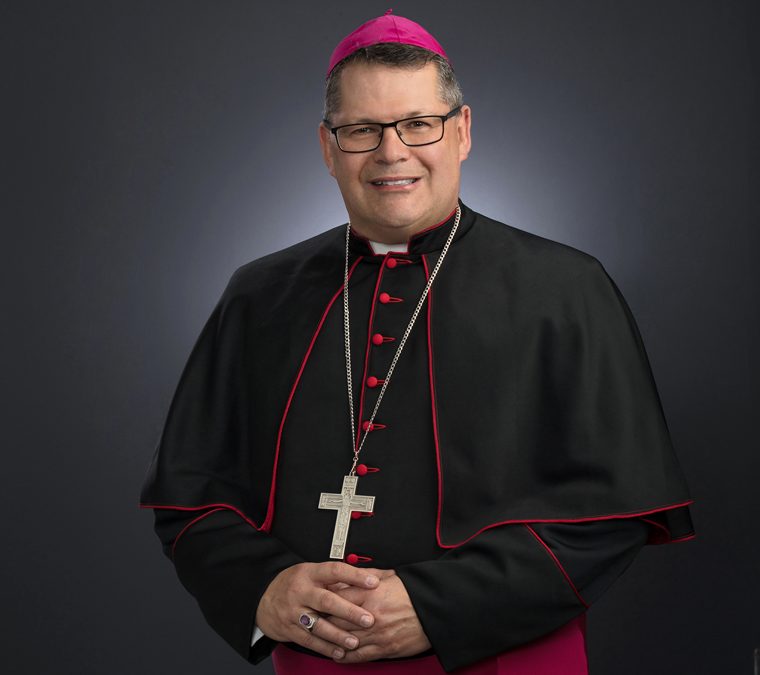One of the hardest things in life is “change.” As a noun, “change” is defined as “the act or instance of making or becoming different.” In its verb form, it signifies to (1) make someone or something different; alter or modify; or (2) replace something with something else, especially something of the same kind that is newer or better; substitute one thing for another.
In our lives, you and I encounter change in different ways: the aging process, employment opportunities and transfers, progressing from one grade level to another in school, going from single to married and vice-versa, moving from the family home to another dwelling, openings and closures of businesses, demolition of buildings and new construction, illness and death, along with other things I am sure could be added to the list. Change can be something we look forward to or a moment one dreads. Yet, just as time waits for no one, the same can be said of change.
The question then becomes, “How can one embrace change gracefully?” For me, that is an important question in our local church as we undergo changes in parishes and institutions within the diocese. Some of us don’t deal with change well and we confront it kicking and screaming all the way. Others take it more in stride with the idea that change is part of life and there is excitement and newness surrounding it. Nonetheless, the bottom line is simply that, “change is inevitable!”
With this in mind, I want to address changes in pastoral assignments that will be forthcoming on July 1 and also the closure of two Catholic schools in our diocese at the end of the present school year. Such changes are not easy, but reflect the fact that we are commissioned by the Risen Jesus to mission – “You are witnesses of these things” (Lk 24:48). Such witness necessitates that we must exit our comfort zones, whether it be a physical space or familiar surroundings or persons for the mission to be ongoing.
This happened when the apostles filled with the Holy Spirit not only left the Upper Room, but left family and friends as well to take up the mission of Jesus and to witness to His Good News. Imagine growing up in Taberg or Sherburne, and you find yourself as a witness of Jesus Christ in Rome, Italy or Santiago, Spain or Ethiopia, or Persia, or on the coast of India. This is what took place in the lives of the apostles in order for the Church to continue its growth. The same dynamic needs to be at work today for the Church to continue its commission to go out to make disciples and teach all nations (cf. Mt 28,19-20) – to bring the Gospel to the farthest corners of our world and points in between.
The change involved in the living out of this mission has been seen over the last 50 years when larger churches were needed to replace smaller ones like at Holy Cross Parish in DeWitt, Immaculate Conception Parish in Fayetteville, or St. Margaret’s Parish in Mattydale. On the other hand, original foundations like St. Mary’s Chapel in Florence or St. Mary’s Chapel in Irish Ridge are no longer used for regular worship because population centers have shifted or even declined. This happens as well in the universal Church. Dioceses like the Diocese of Hippo served by St. Augustine or 17 dioceses in the United States such as Bardstown, Kentucky; Allegheny, Pennsylvania; Walla Walla, Washington; or Leavenworth, Kansas, no longer physically exist because of changing demographics, but their mission continues – as signified when an auxiliary bishop (like Bishop Thomas Costello) is appointed to assist the Diocesan Bishop.
When Bishop Costello was ordained as the auxiliary bishop of Syracuse on March 13, 1978, he was also named the Titular Bishop of Perdices. This was a region in north Africa that in the third century AD had a large Christian population, but it has since dwindled, and the diocese no longer exists. Nonetheless, an auxiliary bishop is given the title to one of these suppressed sees with the underlying hope that someday the territory might be once again a vibrant Church.
This is the message I wish our diocesan church to embrace – that in the midst of change what is central is the mission! We may have to change methodology, schedules, or even the places we gather in community, but the one constant is the mission of spreading the Gospel and the call to discipleship.
Pope Francis in his Sunday Angelus message of August 20, 2023, spoke of change in this way: “God is like this: he is love, and the one who loves does not remain rigid. Yes, he or she stands firm, but not rigid; they do not remain rigid in their own positions, but allow themselves to be moved and touched. They know how to change their plans. Love is creative. And we Christians who want to imitate Christ, we are invited to be open to change. How good it would do our relationships, as well as our lives of faith, if we were to be docile, to truly pay attention, to soften up in the name of compassion and the good of others, like Jesus did with the Canaanite woman (see Mt 15:21-28). The docility to change. Hearts docile to change.”
He goes on to offer us an examination of conscience: “Brothers and sisters, in light of all this, we can ask ourselves a few questions beginning with the change in Jesus. For example: Am I capable of changing opinion? Do I know how to be understanding and do I know how to be compassionate, or do I remain rigid in my position? Is there some rigidity in my heart? Which is not firmness: rigidity is awful, firmness is good.”
Again, I offer for our own prayer as we journey in this Easter season to the great Feast of Pentecost, the prayer that has accompanied me on my ministry among you:
Dear Jesus, help me to spread Your fragrance wherever I go. Flood my soul with Your spirit and life. Penetrate and possess my whole being so utterly, that my life may only be a radiance of Yours. Shine through me, and be so in me that every soul I come in contact with may feel Your presence in my soul. Let them look up and see no longer me, but only Jesus! Stay with me and then I shall begin to shine as You shine, so to shine as to be a light to others. The light, O Jesus, will be all from You; none of it will be mine. It will be you, shining on others through me. Let me thus praise You the way You love best, by shining on those around me. Let me preach You without preaching, not by words but by my example, by the catching force of the sympathetic influence of what I do, the evident fullness of the love my heart bears to You. Amen.






